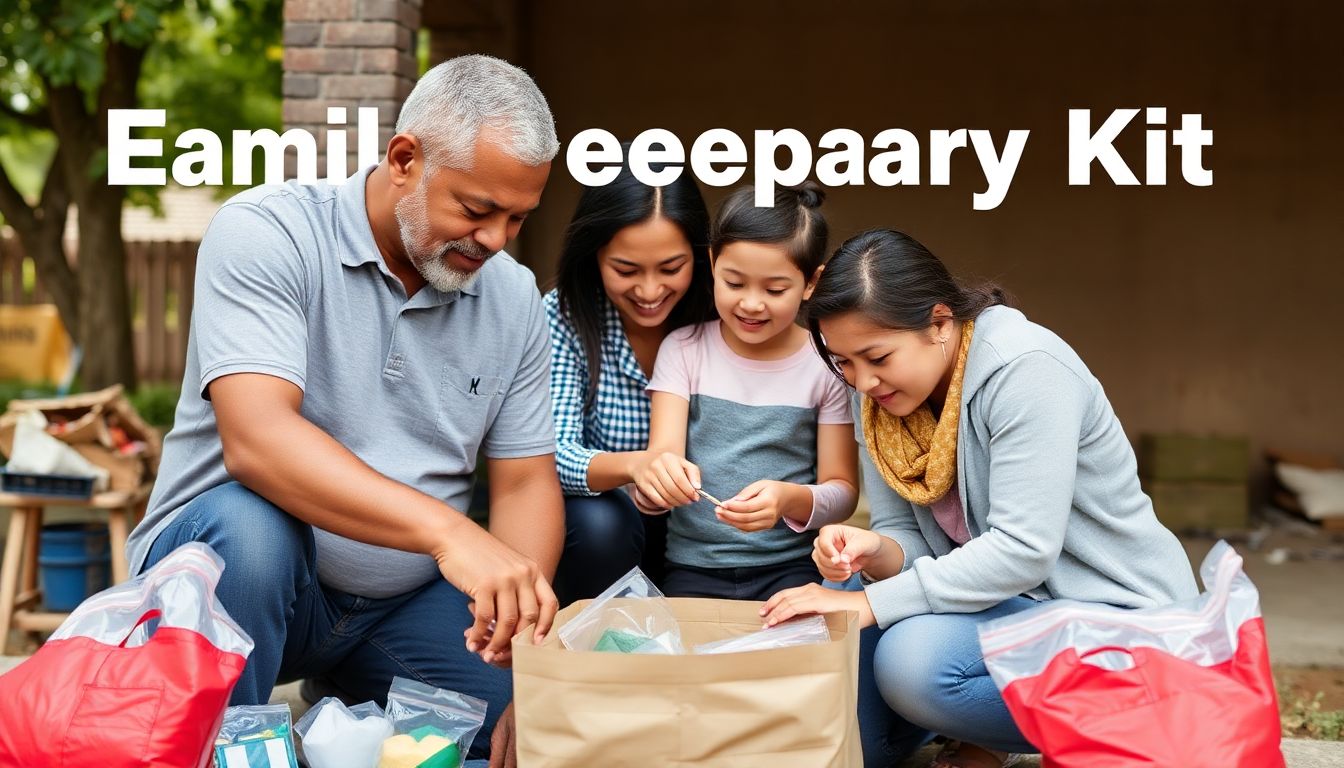In the face of escalating social tensions and global uncertainties, the specter of civil unrest looms large, posing not only physical threats but also significant psychological challenges. Mental resilience, the ability to adapt and bounce back from adversity, and stress management, the process of coping with demands that exceed our resources, become paramount in such trying times. This article, ‘Psychological Preparedness for Civil Unrest’, is designed to equip you with the essential tools from the realm of crisis psychology to navigate these tumultuous periods, ensuring your mental well-being and enhancing your overall resilience.
Consider this: According to a study by the American Psychological Association, nearly two-thirds of Americans report that the future of the nation is a significant source of stress for them. This figure is even higher among younger adults, with 75% of millennials and 72% of Generation Z reporting stress about the future of the country. These statistics underscore the pressing need for psychological preparedness in an era marked by political polarization, economic instability, and social upheaval.
You might be wondering, ‘How can I prepare for something as unpredictable as civil unrest?’ or ‘What strategies can help me cope with the stress and anxiety that comes with such situations?’ This article aims to answer these questions and more. By delving into the principles of mental resilience and stress management, we will explore practical strategies to help you not only survive but thrive in the face of civil unrest. We will also discuss the role of community support and the importance of maintaining a balanced perspective.
By the end of this article, you will have a clear understanding of the psychological impacts of civil unrest, the importance of preparedness, and a comprehensive toolkit of strategies to enhance your mental resilience. You will learn how to recognize and manage stress, maintain a sense of control, and foster a sense of community in times of crisis. So, whether you’re a concerned citizen, a community leader, or simply someone who wants to be better prepared for the challenges ahead, this article is for you. Let’s embark on this journey towards psychological preparedness, ensuring that we are not just ready for the storms of life, but capable of weathering them with strength and composure.
Navigating Turbulent Times: Psychological Preparedness for Civil Unrest
Navigating Turbulent Times: Psychological Preparedness for Civil Unrest. In today’s increasingly interconnected world, civil unrest has become an unfortunate reality that can strike at any moment. While we cannot control external circumstances, we can certainly prepare ourselves psychologically to navigate these challenging times. Understanding the psychological impact of civil unrest is the first step. Stress, anxiety, and fear are common responses, which can be exacerbated by the uncertainty and unpredictability of the situation. However, it’s crucial to remember that these feelings are normal and can be managed. Building resilience, a key component of psychological preparedness, involves cultivating a sense of self-efficacy, seeking social support, and maintaining a positive outlook. It’s also important to stay informed but avoid excessive exposure to news, as this can fuel anxiety. Practicing mindfulness and stress-reduction techniques such as deep breathing, meditation, or yoga can help keep emotions in check. Moreover, having a plan in place, including an emergency kit and a communication strategy with loved ones, can provide a sense of control and security. Lastly, it’s essential to remember that it’s okay to ask for help. Reaching out to mental health professionals or trusted friends and family can provide the support needed to cope with the psychological challenges of civil unrest. By taking these steps, we can enhance our psychological preparedness, ensuring that we are better equipped to navigate turbulent times.

Understanding Mental Resilience
Mental resilience, a concept often misunderstood, refers to the ability to recover from or adjust to misfortune or change. It’s not about never falling, but rather, it’s about getting back up and moving forward. Unlike mental toughness, which is often associated with unyielding stoicism, mental resilience is more about adaptability, flexibility, and the capacity to bounce back from adversity. It’s about finding the strength to carry on, even when faced with overwhelming challenges.
In crisis situations, mental resilience plays a pivotal role. It’s the inner strength that helps individuals cope with unexpected events, such as natural disasters, personal losses, or global pandemics. It’s what enables people to maintain their sense of self and continue functioning despite the chaos around them. Mental resilience helps in managing stress, maintaining a positive outlook, and making informed decisions under pressure.
In the context of civil unrest, mental resilience is particularly crucial. It’s what helps communities come together to support each other, to find solutions, and to rebuild. It’s the strength that enables individuals to stand up for what they believe in, even in the face of adversity. It’s also what helps people to process and cope with the emotional turmoil that often accompanies such situations. By fostering mental resilience, we can better navigate the challenges of civil unrest, promoting not just survival, but also growth and healing.

The Psychology of Stress Management
Stress, a ubiquitous aspect of modern life, is a complex psychological and physiological response that can significantly impact our well-being. The psychology of stress management begins with understanding the body’s stress response, often referred to as the ‘fight or flight’ reaction. When faced with a perceived threat, the sympathetic nervous system triggers the release of hormones such as adrenaline and cortisol, preparing the body for action. This response is adaptive in acute situations, but when activated repeatedly or sustained over extended periods, as is common during civil unrest, it can lead to chronic stress.
Chronic stress exacts a heavy toll on mental health. Prolonged exposure to stress hormones can disrupt the balance of neurotransmitters in the brain, leading to symptoms of anxiety and depression. Moreover, chronic stress can impair cognitive function, making it difficult to concentrate, make decisions, or remember information. It can also weaken the immune system, making individuals more susceptible to illnesses.
Effective stress management during civil unrest involves a multi-pronged approach that combines strategies to mitigate the impact of stress and promote mental well-being. One key strategy is to maintain a sense of control and predictability in daily life. This can involve creating routines, setting realistic goals, and breaking tasks into manageable parts. Another crucial aspect is fostering social connections. During times of uncertainty, it’s essential to maintain social support networks, which can provide emotional validation, practical help, and a sense of belonging.
Mindfulness and relaxation techniques are also powerful tools for managing stress. Mindfulness involves focusing the mind on the present moment, acknowledging and accepting one’s feelings, thoughts, and bodily sensations. This practice can help to interrupt the cycle of rumination and worry that often accompanies stress. Relaxation techniques such as deep breathing, progressive muscle relaxation, and yoga can help to reduce physiological arousal and promote a sense of calm. Lastly, engaging in physical activity can help to reduce stress hormones and improve mood, providing a valuable outlet for pent-up emotions.

Building Emotional Regulation Skills
Emotional regulation, a crucial aspect of mental health, refers to the ability to recognize, understand, and manage one’s emotions effectively. This skill plays a pivotal role in navigating crises, as it helps individuals adapt to challenging situations, maintain resilience, and prevent emotional overwhelm. During times of stress or uncertainty, emotional regulation enables us to respond thoughtfully rather than react impulsively, fostering better decision-making and interpersonal relationships.
To cultivate and enhance emotional regulation, several practical techniques can be employed. Mindfulness, a practice rooted in Buddhism, has gained significant traction in modern psychology due to its proven benefits. By focusing on the present moment without judgment, mindfulness helps individuals acknowledge and accept their emotions, reducing emotional reactivity and promoting a sense of calm. This can be achieved through meditation, deep breathing exercises, or simply pausing to observe one’s thoughts and feelings throughout the day.
Another powerful technique is cognitive restructuring, which involves identifying and challenging irrational or negative thought patterns that contribute to emotional distress. By examining the evidence for and against these thoughts, individuals can reframe them in a more balanced and realistic manner, thereby moderating their emotional response. For instance, instead of thinking ‘I can’t handle this,’ one might reframe it as ‘This is challenging, but I have coped with difficulties before and can do so again.’
Incorporating these techniques into daily life can significantly improve emotional regulation, fostering mental well-being and resilience during crises. It is essential to remember that emotional regulation is a skill that can be learned and improved over time, much like physical fitness. Therefore, consistent practice and patience are key to reaping the benefits of enhanced emotional regulation.

The Role of Social Support in Crisis
In the face of civil unrest, maintaining mental resilience is a formidable challenge. One of the most powerful tools to navigate such trying times is the presence of a robust social support network. Social support, the comfort, help, and assistance we receive from others, plays an indispensable role in bolstering our mental fortitude during crises. It provides a sense of belonging, reduces feelings of isolation, and offers practical help, all of which are crucial in maintaining mental well-being.
During civil unrest, social support can manifest in various forms. It could be the reassuring words of a friend, the shared experiences of a community, or the practical assistance of neighbors. These interactions can help individuals process their emotions, gain new perspectives, and find solutions to problems. Moreover, social support can also act as a buffer against stress, helping individuals to cope with the demands of the situation and preventing mental health issues from escalating.
Building and maintaining social support networks in challenging circumstances, however, requires conscious effort. It starts with reaching out to others, even when it feels difficult. This could be as simple as a phone call, a text message, or a virtual meet-up. It’s also important to listen actively to others, offering empathy and understanding, as this can foster a sense of connection and mutual support. Additionally, seeking out and accepting help from others is not a sign of weakness, but a testament to the power of community. Lastly, it’s crucial to remember that everyone’s needs are different, and what one person finds supportive might not work for another. Therefore, it’s important to be open to diverse forms of support and to communicate our needs clearly.
In conclusion, the role of social support in maintaining mental resilience during civil unrest cannot be overstated. It is a lifeline that connects us to others, providing comfort, strength, and hope. By building and maintaining these networks, we not only support ourselves but also contribute to the resilience of our communities.

Preparing for the Psychological Impact of Civil Unrest
Civil unrest, characterized by protests, riots, or social upheaval, can have profound psychological impacts on those who experience or witness these events. One of the most significant potential consequences is the development of post-traumatic stress disorder (PTSD). PTSD is a mental health condition that can occur after experiencing or witnessing a traumatic event. Symptoms may include flashbacks, nightmares, severe anxiety, and uncontrollable thoughts about the event. Anxiety and depression are also common psychological responses to civil unrest. Anxiety can manifest as excessive worry, restlessness, and difficulty concentrating, while depression can lead to persistent feelings of sadness, hopelessness, and a loss of interest in daily activities.
Preparing for the psychological impacts of civil unrest involves several steps. Firstly, it’s crucial to stay informed about the situation through reliable sources to avoid misinformation and unnecessary anxiety. Secondly, maintain a support network of family, friends, or community members who can provide emotional support and understanding. It’s also important to engage in self-care activities such as regular exercise, a healthy diet, and adequate sleep, which can help manage stress and anxiety. Additionally, preparing a mental health ‘first aid’ kit can be beneficial. This could include a list of local mental health resources, coping strategies, and the contact information of mental health professionals.
Mitigating the psychological impacts of civil unrest involves seeking help early if symptoms of PTSD, anxiety, or depression arise. This could involve speaking with a mental health professional, joining a support group, or practicing mindfulness and relaxation techniques. It’s also important to remember that it’s okay to ask for help and that seeking support is a sign of strength, not weakness. Lastly, fostering a sense of community and connection can help mitigate the psychological impacts of civil unrest. This could involve volunteering, participating in community events, or simply checking in on neighbors and friends.

Coping Strategies for Uncertainty and Change
Navigating uncertainty and rapid change, especially during times of civil unrest, can be challenging and stressful. These periods are often characterized by unpredictability, which can trigger anxiety, fear, and a sense of loss of control. However, it’s crucial to remember that while we cannot control external circumstances, we can indeed influence how we respond to them. One of the most effective coping strategies is to cultivate adaptability and flexibility.
Adaptability, the ability to adjust to new conditions, is key in uncertain times. It allows us to roll with the punches, so to speak, and find new ways to navigate our daily lives when old routines are disrupted. For instance, if you’re used to commuting to work but are now working from home due to unrest, adaptability helps you establish a new routine, create a home office space, and find ways to stay connected with colleagues.
Flexibility, on the other hand, is about being open to change and willing to modify our plans or expectations. It’s about understanding that what we had planned might not happen, and that’s okay. Instead of dwelling on what’s lost, flexible thinking helps us focus on what we can do now. For example, if a planned protest march is cancelled due to safety concerns, flexibility allows us to find alternative ways to express our support and make our voices heard.
Both adaptability and flexibility play a significant role in maintaining mental health during uncertain times. They help reduce stress by making us feel more in control of our lives. They also foster resilience, the ability to bounce back from adversity, which is a key component of mental well-being. Other coping strategies that complement adaptability and flexibility include staying informed but not overwhelmed by news, maintaining social connections, practicing self-care, and seeking professional help when needed.

Maintaining a Sense of Control
Maintaining a sense of control is a psychological necessity, especially during crisis situations. It’s our brain’s way of coping with uncertainty and unpredictability. When we feel in control, we’re better equipped to manage stress, make decisions, and navigate challenges. Conversely, a loss of control can lead to anxiety, helplessness, and even paralysis. In such situations, it’s crucial to remember that while we may not be able to control external circumstances, we can always control our response to them.
Regaining a sense of control often starts with setting clear, achievable goals. This could be as simple as ‘I will make a list of tasks to do today’ or ‘I will spend an hour on self-care’. Breaking down larger problems into smaller, manageable tasks can make them feel less overwhelming and more within our control. Another strategy is to focus on what you can influence. Instead of dwelling on what you can’t change, redirect your energy towards actions that can make a difference.
Problem-solving is another powerful tool. Begin by identifying the problem, then brainstorm possible solutions. Evaluate each option, considering its pros and cons. This process not only helps you regain a sense of control but also empowers you to take action. Lastly, don’t underestimate the power of self-talk. Remind yourself that you’ve navigated challenges before, and that you have the resilience to do so again. It’s a simple yet effective way to reinforce your sense of control and boost your confidence.

The Role of Physical Health in Mental Resilience
Maintaining physical health plays a pivotal role in fostering mental resilience, especially during challenging times such as civil unrest. Mental resilience, the ability to recover from or adjust to misfortune or change, is not merely a function of mental prowess but is deeply intertwined with our physical well-being.
Regular physical exercise is a cornerstone of maintaining good physical health and enhancing mental resilience. Engaging in regular physical activity boosts the production of endorphins, often referred to as ‘feel-good’ hormones, which act as natural mood lifters and stress relievers. These hormones can help mitigate the effects of stress and anxiety, common during periods of civil unrest, and promote a sense of well-being. Moreover, exercise provides a healthy distraction, allowing individuals to channel their energy and emotions into a productive activity, thereby reducing feelings of helplessness and powerlessness.
Nutrition is another critical aspect of physical health that significantly impacts mental resilience. A balanced diet rich in fruits, vegetables, lean proteins, and whole grains provides the brain with the necessary nutrients to function optimally. Conversely, a diet high in processed foods, sugars, and unhealthy fats can lead to inflammation, which has been linked to various mental health issues, including depression and anxiety. Therefore, maintaining a healthy diet can help bolster mental resilience and enhance coping abilities during civil unrest.
Sleep, often overlooked, is a vital component of physical health that profoundly influences mental resilience. Adequate sleep is essential for the brain to consolidate memories, process emotions, and regulate mood. During periods of civil unrest, maintaining a consistent sleep schedule can help regulate emotions and improve cognitive function, enabling individuals to make better decisions and cope more effectively with the situation at hand.
In conclusion, the role of physical health in mental resilience is undeniable. By maintaining a regular exercise routine, adhering to a balanced diet, and prioritizing adequate sleep, individuals can significantly enhance their coping abilities and mental resilience during civil unrest. This holistic approach to health and well-being can help individuals not only survive but thrive in challenging times.

Preparing Children and Families for Civil Unrest
Preparing children and families for the psychological impacts of civil unrest is a crucial step in ensuring everyone’s well-being and safety. Civil unrest can be a confusing and frightening experience for children, and it’s important to approach this topic with care and understanding. Age-appropriate explanations are key. For younger children, use simple, reassuring language. Explain that people are upset about something and are expressing their feelings loudly, but that they are not in immediate danger. For older children, provide more context and encourage them to ask questions. Maintaining routines can also help children feel secure. Try to keep daily schedules as normal as possible, including meal times, bedtimes, and school or homework routines. This predictability can provide a sense of control and comfort. Open communication is vital. Encourage children to express their feelings and listen actively to their concerns. Validate their emotions and reassure them that it’s okay to feel scared or upset. It’s also important to model healthy coping mechanisms. If you’re feeling anxious or stressed, let your children see you taking care of yourself, such as through deep breathing, exercise, or talking to a trusted friend or family member. Lastly, stay informed but limit exposure to news coverage, especially before bedtime, as it can be upsetting and interfere with sleep. By preparing children and families together, we can navigate through challenging times with resilience and understanding.

Seeking Professional Help When Needed
In the aftermath of civil unrest, it’s crucial to prioritize mental health and well-being. The emotional toll of such events can be significant, with individuals experiencing a range of reactions, from stress and anxiety to more severe mental health issues. Seeking professional help during these times is not a sign of weakness, but rather a proactive step towards maintaining or regaining mental health.
Professional help can provide a safe space to process complex emotions, develop coping strategies, and receive evidence-based treatments. Mental health professionals are trained to assist individuals in navigating challenging circumstances and can offer valuable insights and tools. They can also help distinguish between normal reactions to trauma and more serious mental health conditions that may require additional support.
Accessing mental health services during and after civil unrest is possible through various channels. Traditional in-person therapy is an option, but given the current global situation, telehealth services have emerged as a convenient and effective alternative. Telehealth allows individuals to receive mental health services remotely, via video calls, phone calls, or online chats. This modality ensures that individuals can access care from the safety and comfort of their own homes, which can be particularly beneficial during times of social distancing or when mobility is restricted.
Other remote support options include online support groups, forums, and chat services. These platforms provide a space for individuals to connect with others who are going through similar experiences, share coping strategies, and offer mutual support. However, while these resources can be helpful, they should not replace professional help. It’s important to remember that while peers can provide valuable understanding and encouragement, they cannot provide the same level of expertise or confidentiality as a mental health professional.
In conclusion, seeking professional help when needed is a vital step in maintaining mental health during and after civil unrest. Whether it’s through traditional in-person therapy or remote support options like telehealth, accessing mental health services can provide a lifeline during challenging times. It’s important to remember that everyone’s experience is unique, and what’s most important is finding the support that works best for you.
FAQ
What is psychological preparedness and why is it crucial during civil unrest?
How can I build mental resilience to cope with the stress of civil unrest?
- Practice self-care: Ensure you’re getting enough sleep, eating healthily, and engaging in regular physical activity.
- Stay connected: Maintain strong social networks and seek support from friends, family, or support groups.
- Develop coping strategies: Identify healthy ways to manage stress, such as mindfulness, meditation, or creative outlets like art or music.
- Reframe thoughts: Challenge negative thoughts and reframe them in a more positive or realistic light.
- Set realistic goals: Break down tasks into manageable steps and celebrate small victories.
What is stress management, and how can it help during civil unrest?
- Deep breathing exercises: Slow, deep breaths can help lower stress in the body and clear your mind.
- Progressive muscle relaxation: This involves tensing and then releasing different muscle groups in your body to help you become aware of physical sensations and learn to relax.
- Mindfulness and meditation: Focusing on the present moment can help reduce anxiety and stress.
- Exercise: Regular physical activity can help reduce stress hormones and improve your mood.
- Healthy eating and adequate sleep: Maintaining a balanced diet and getting enough rest can boost your energy, improve your mood, and reduce stress levels.
How does crisis psychology differ from everyday psychology?
What are some common psychological reactions to civil unrest, and how can I recognize them?
- Fear and anxiety: Worry about safety, uncertainty, and the future can lead to increased anxiety and fear.
- Anger: Frustration, injustice, or loss of control can trigger feelings of anger.
- Sadness and depression: Grief, loss, or the cumulative effect of stress can lead to feelings of sadness or depression.
- Post-traumatic stress disorder (PTSD): Intense, prolonged stress or trauma can result in PTSD, characterized by intrusive memories, avoidance behaviors, negative thoughts, and hyperarousal.
- Disbelief and denial: Initial shock may lead to disbelief or denial about the situation.
- Guilt and shame: Feelings of guilt or shame may arise due to perceived failures, losses, or actions taken during the crisis.
Recognizing these reactions in yourself or others is the first step in seeking appropriate support and care.
How can I support others psychologically during civil unrest?
- Be present: Show up for them, both physically and emotionally, and let them know you’re there to listen and support them.
- Active listening: Give them your full attention, show empathy, and validate their feelings. Avoid interrupting or offering unsolicited advice.
- Encourage self-care: Remind them to take care of their physical, emotional, and mental well-being.
- Help them connect with resources: Assist them in finding professional help, support groups, or other resources that can provide additional support.
- Promote a sense of community: Foster a sense of connection and belonging by organizing group activities, support groups, or community events.
- Take care of yourself: To effectively support others, it’s essential to prioritize your own well-being and seek support when needed.
What can I do to prepare my family for civil unrest?
- Develop an emergency plan: Create a family emergency plan that includes evacuation routes, meeting points, and communication strategies. Ensure all family members are familiar with the plan.
- Discuss potential scenarios: Talk about various situations that could arise during civil unrest, such as power outages, curfews, or evacuations. Encourage everyone to share their thoughts and concerns.
- Establish a support network: Connect with neighbors, friends, and extended family to create a support network that can help during emergencies.
- Gather essential supplies: Stock up on essential supplies, such as water, non-perishable food, medication, and important documents, to ensure your family’s basic needs are met during an emergency.
- Practice drills: Conduct regular drills to practice your emergency plan and ensure everyone knows what to do in case of an emergency.
- Encourage open communication: Foster an environment where family members feel comfortable discussing their feelings, concerns, and fears. This can help everyone process emotions and stay connected during challenging times.
How can I maintain a sense of normalcy during civil unrest?
- Establish routines: Try to maintain daily routines, such as meal times, exercise, and sleep schedules, to create a sense of structure and familiarity.
- Engage in hobbies and interests: Participate in activities you enjoy, such as reading, painting, or listening to music, to help you relax and unwind.
- Stay informed: Keep up-to-date with reliable news sources to stay informed about the situation, but avoid excessive news consumption, which can increase anxiety.
- Connect with others: Maintain social connections by reaching out to friends, family, or support groups to share experiences, seek support, and offer help.
- Practice gratitude: Focus on the positive aspects of your life and express gratitude for the things you have, rather than dwelling on losses or challenges.
- Seek professional help if needed: If feelings of anxiety, stress, or depression persist, don’t hesitate to seek help from a mental health professional.









